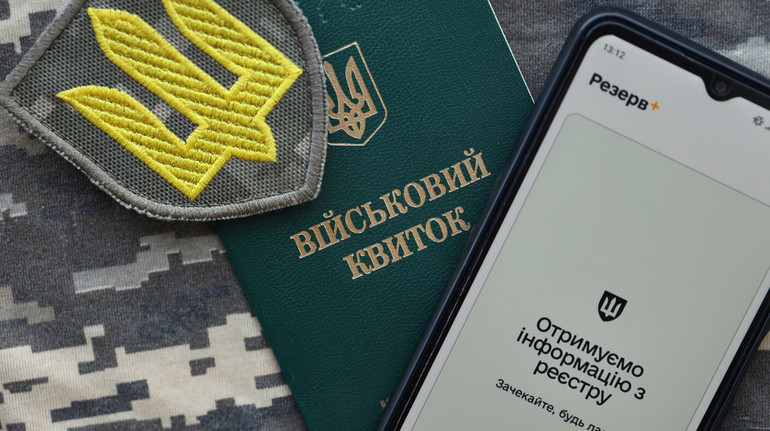I am studying in the third year of the State University of Economics and Technology.I specialize in contractual, economic and corporate law, in particular, I provide consultations and write articles.
What is a subpoena?
A summons is an official document that summons a conscript to the territorial recruitment and social support center (TCC and SP). The main purposes of serving a summons:
- Update of registration data: In case of outdated or incorrect data in military registration documents.
- Passing the military medical commission (MMC): Assessment of a person's fitness for military service.
- Checking the presence of a deferment: If there are questions about the status of a person in military registration.
Actions if you have received a subpoena
- Verification of credentials: If you believe that you have fulfilled all the rules of military registration, conduct a verification: the presence of current military registration documents, notes about the last update of data, a barcode to verify information in the "Oberig" register.
- Communication with TCC and JV: If you have a valid deferment, prepare documents that prove it. Explain to the representatives of the TCC and SP that the data has not changed since the last update and that your deferment is valid. Keep copies of all submitted documents and grades received. In case of difficulties or misunderstandings with the TCC and SP, it is recommended to seek help from a lawyer who specializes in military law.
- Update your details regularly: Check and update your credentials regularly to avoid misunderstandings in the future.
Question
Under what conditions can a subpoena be refused?
Answer
If the subpoena contains incorrect information (for example, first name, last name, date of birth or address), this may be grounds for refusal. In this case, it is necessary to notify the TCC and the SP. If the subpoena is served by a person who does not have the appropriate authority to do so, for example, is not a representative of the TCC or JV, you have the right to refuse such a subpoena. If the summons does not have the seal of the TCC or the signature of its head, this indicates that the document may be unofficial or invalid.
How to properly refuse a subpoena
- It is recommended to send a written notice to the TCC in which you clearly state the reasons for refusing the subpoena. This may be useful in case of possible legal inquiries in the future.
- Keep copies of all documents related to the denial, as well as any testimony (such as witnesses to the service of the subpoena) that may support your case.
- If you are unsure about your actions or if you feel that the situation may lead to complications, it is recommended that you consult a lawyer who specializes in military law.
- Waiver of a subpoena is possible in several cases, and it is important to know your rights. The correct registration of the refusal and the availability of documentary evidence can help avoid problems with the TCC in the future.
- If the military registration data has not been updated, the conscript has no reason to refuse to receive the summons. This means that the individual must comply with all military registration requirements.
- Refusal of a subpoena without legal grounds may be considered a violation of the rules of military registration and legislation on mobilization. This may lead to legal consequences.
The procedure for refusing a subpoena
- If the conscript decides to refuse the summons, the representatives of the TCC and SP draw up an act of refusal. In this act, the conscript can indicate the reasons for his refusal and sign it. If the person refuses to sign the act or does not want to give reasons, the document can be signed by witnesses who witnessed the refusal.
- The fact of refusal of a conscript is recorded, which may become the basis for further actions by the TCC. This is important, because in the future such a refusal may affect the status of a person in military registration.
- Conscripts who do not comply with subpoena requirements and do not provide explanations may face administrative or criminal sanctions. This may include fines or even criminal liability for evading mobilization.
Question
What is the liability for refusing a subpoena?
Answer
Subpoenas for updating military registration data: Refusal of such a subpoena entails administrative responsibility. A fine may be imposed on the conscript if he does not comply with the requirement to update his data or ignores this subpoena. It is important to note that the number of refusals does not lead to criminal liability; only administrative sanctions are applied in this case. Subpoenas for Military Medical Commission (MMC): Refusal to pass MMC is a more serious offense. Such a refusal may result in criminal liability. A conscript may be subject to criminal prosecution for evading a medical examination, which determines his fitness for service. Mobilization orders (combat summonses): Refusal of mobilization summonses also leads to criminal liability.
Refusal of different types of subpoenas has different legal consequences. Administrative liability applies to subpoenas to update data, while refusal to comply with VLC or mobilization orders can lead to criminal liability. It is important that conscripts are careful and aware of their legal obligations in order to avoid negative consequences.
Services of a lawyer when serving a summons
Here are some of the main types of legal services:
Lawyer consultation and legal analysis of the situation: A lawyer can provide advice on the rights and obligations of a conscript when receiving a summons, explain the difference between the types of summons and their legal consequences. A lawyer services online can explain the possible consequences of refusing a subpoena, including administrative or criminal liability. lawyers online can check whether the subpoena meets the requirements of the law, in particular, whether it contains the correct information, whether it has the necessary seals and signatures.
A lawyer help in drawing up an act of refusal: If a conscript decides to refuse a subpoena, a lawyer can help in drawing up an act of refusal, as well as suggest what reasons can be given. A lawyer can accompany a conscript during a meeting with representatives of the TCC and SP to ensure proper execution of the procedure. The lawyer can prepare all the necessary documents related to the subpoena, including statements, acts of refusal, appeals to the TCC, etc.
Lawyer services for conflict resolution: In case of conflicts or disputes with TCC or JV, a lawyer can represent the interests of a conscript in court. If conflicts arise with TCC representatives, a lawyer can help resolve the situation.
Subpoena legal services can be very helpful as they help conscripts understand their rights and responsibilities and ensure that all paperwork is completed properly. The services of a subpoena lawyer can be an important resource for conscripts seeking to understand their rights, avoid legal mistakes, and ensure the legality of their actions. The right lawyer advice can significantly facilitate the process of interaction with military commissariats and minimize the risks of negative consequences.
































